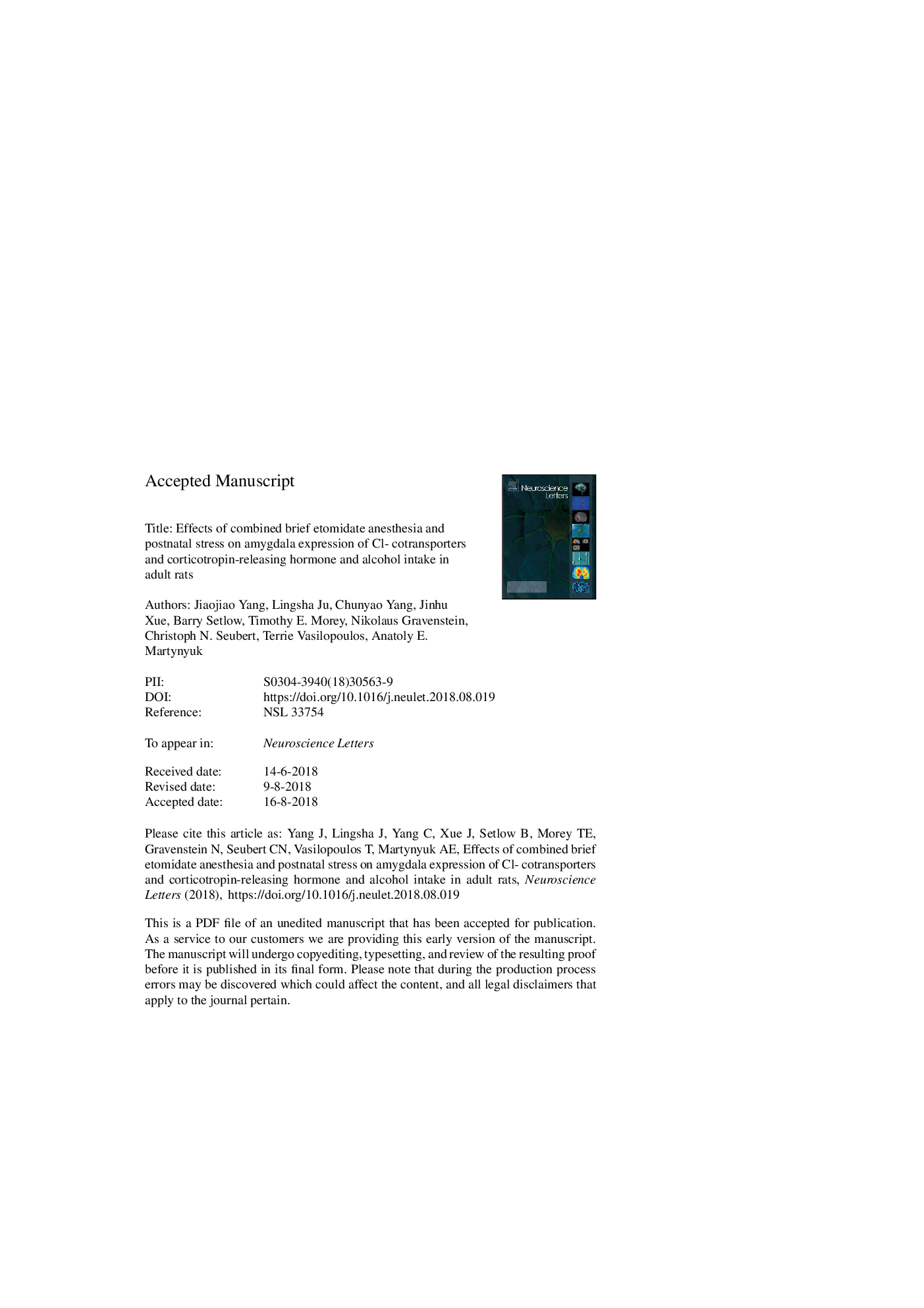| Article ID | Journal | Published Year | Pages | File Type |
|---|---|---|---|---|
| 10106940 | Neuroscience Letters | 2018 | 27 Pages |
Abstract
Early life stressors, including general anesthesia, can have adverse effects on adult neural and behavioral outcomes, such as disruptions in inhibitory signaling, stress responsivity and increased risk of psychiatric disorders. Here we used a rat model to determine the effects of combined exposure to etomidate (ET) neonatal anesthesia and maternal separation on adult amygdala expression of genes for corticotropin-releasing hormone (Crh) and the chloride co-transporters Nkcc1 and Kcc2, as well as ethanol intake. Male and female Sprague-Dawley rats were subjected to 2âh of ET anesthesia on postnatal days (P) 4, 5, or 6 followed by maternal separation for 3âh on P10 (ETâ+âSEP). During the P91-P120 period rats had daily 2âh access to three 0.05% saccharin solutions containing 0%, 5%, or 10% ethanol, followed by gene expression analyses. The ETâ+âSEP group had increased Crh mRNA levels and Nkcc1/Kcc2 mRNA ratios in the amygdala, with greater increases in Nkcc1/Kcc2 mRNA ratios in males. A moderate increase in 5% ethanol intake was evident in the ETâ+âSEP males, but not females, after calculation of the ratio of alcohol intake between the last week and first week of exposure. In contrast, control males tended to decrease alcohol consumption during the same period. A brief exposure to ET combined with a subsequent episode of stress early in life induced significant alterations in expression of amygdala Crh, Nkcc1 and Kcc2 with greater changes in the Clâ transporter expression in males. The possibility of increased alcohol intake in the exposed males requires further confirmation using different alcohol intake paradigms.
Related Topics
Life Sciences
Neuroscience
Neuroscience (General)
Authors
Jiaojiao Yang, Lingsha Ju, Chunyao Yang, Jinhu Xue, Barry Setlow, Timothy E. Morey, Nikolaus Gravenstein, Christoph N. Seubert, Terrie Vasilopoulos, Anatoly E. Martynyuk,
